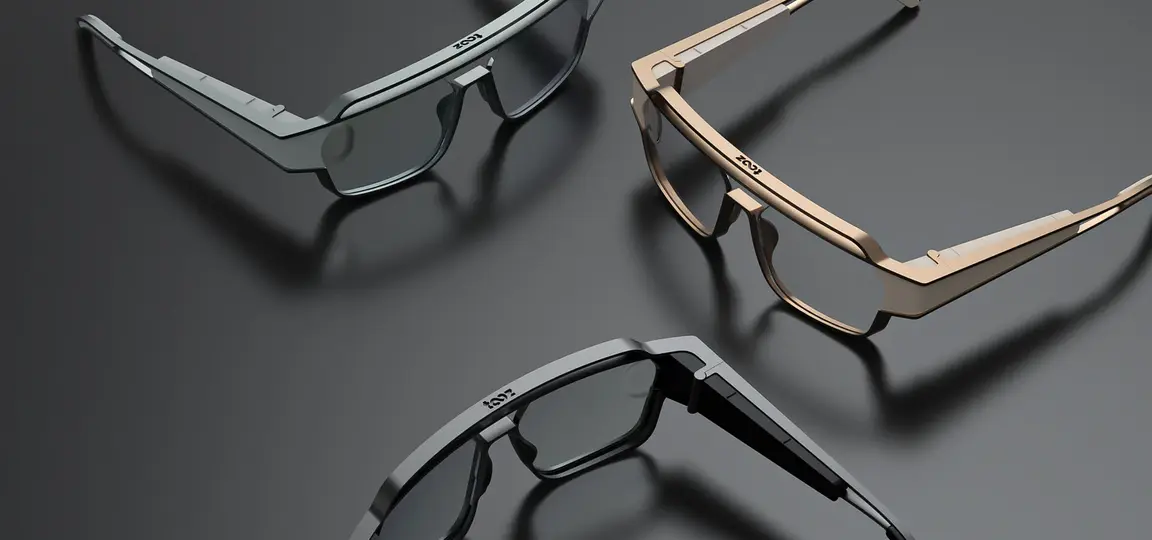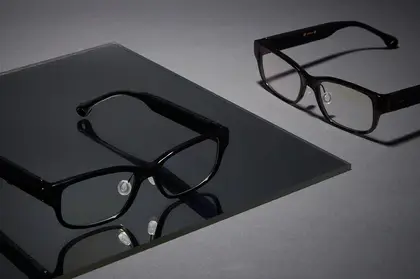Should you purchase Smart Glasses?
Posted on May 9, 2023 5 minutes 1006 words
Table of contents
Smart glasses, the cutting-edge wearable technology that combines the features of a smartphone with the convenience of eyewear, are becoming increasingly popular. With big players like Google, Apple, and Facebook entering the market, the buzz around smart glasses is growing. But with their many advantages come some concerns as well. This comprehensive blog post will delve into the world of smart glasses, examining their features, pros, cons, and alternatives, to help you decide if they’re the right investment for you.
Understanding Smart Glasses
Smart glasses are wearable devices that incorporate computerized technology into eyeglasses or sunglasses. They feature a heads-up display (HUD), which projects digital information directly onto the lenses or in the user’s field of vision, as well as integrated cameras, sensors, and microphones. Smart glasses often come with built-in voice assistants and can connect to your smartphone via Bluetooth, allowing you to access notifications, make calls, and control various functions through voice commands or touch controls on the frames.
Pros of Smart Glasses
Convenience
Smart glasses bring the functionality of a smartphone to your field of vision, making it easy to access information, notifications, and communication tools without having to look down at your phone. This hands-free approach can be particularly useful while driving, cycling, or engaging in other activities where taking out your phone would be inconvenient or unsafe.
Augmented Reality
One of the most exciting features of smart glasses is their ability to provide augmented reality (AR) experiences. AR overlays digital information, such as navigation instructions, restaurant reviews, or social media updates, onto your view of the real world, enhancing your daily experiences.
Hands-Free Navigation
With built-in GPS, smart glasses can provide turn-by-turn directions directly in your line of sight, making navigation easier and safer, especially when driving or walking in unfamiliar areas.
Fitness Tracking
Many smart glasses come with integrated sensors that can monitor your physical activities, heart rate, and other health data, providing a convenient way to track your fitness goals and progress.
Accessibility
For users with visual or hearing impairments, smart glasses can offer valuable assistance. Features like text-to-speech, sign language recognition, and real-time captions can help improve their daily lives and interactions.
Cons of Smart Glasses
Social Etiquette
The presence of cameras in smart glasses can make some people uncomfortable, as they might not know if they’re being recorded. This uncertainty can lead to awkward social situations and raise questions about the appropriate use of such devices in public spaces.
Privacy Concerns
With integrated cameras and constant data collection, smart glasses have raised concerns about surveillance and the potential for misuse of personal information. This issue has prompted discussions around the need for stronger privacy protections and regulations.
Battery Life
Despite advances in battery technology, the power demands of smart glasses often result in limited usage time. Frequent recharging might be necessary, which can be inconvenient for users on the go.
Style and Comfort
Not all smart glasses are designed with aesthetics and comfort in mind. Bulky or unattractive designs can be off-putting for some potential buyers, and poorly fitting frames can cause discomfort during extended use.
Cost
Most smart glasses come with a relatively high price tag, making them a significant investment. While some models are more affordable, they often sacrifice features or quality in order to reach a lower price point.
Alternatives to Smart Glasses
If you’re not convinced that smart glasses are the right choice for you, there are other wearable technologies to consider. Smartwatches and fitness trackers offer many of the same features as smart glasses, such as notifications, fitness tracking, and voice assistants, without some of the drawbacks associated with eyewear.
Smartwatches
Smartwatches have become increasingly popular, offering a wide range of features like customizable watch faces, activity tracking, heart rate monitoring, and integration with smartphone apps. They also allow you to receive and respond to notifications, control music playback, and use voice assistants like Siri or Google Assistant. Some models even include built-in GPS and cellular connectivity, enabling you to leave your phone behind during workouts or outdoor activities.
Fitness Trackers
Fitness trackers focus primarily on monitoring your physical activities and providing insights into your health and wellness. They track metrics such as steps, calories burned, distance traveled, sleep patterns, and heart rate. Many fitness trackers also offer smartphone connectivity, allowing you to receive notifications and control certain functions directly from your wrist.
Comparing the pros and cons of smartwatches and fitness trackers to those of smart glasses can help you determine which wearable technology best suits your needs and preferences.
Making the Decision
Ultimately, deciding whether to purchase smart glasses depends on your individual priorities, budget, and lifestyle. Consider the following steps to help you make an informed decision
Identify your needs
Determine which features are most important to you, such as AR capabilities, fitness tracking, or hands-free navigation. Assess whether smart glasses or an alternative wearable device can better meet those needs.
Try before you buy
Visit a retail store that offers smart glasses and try on different models to get a feel for their fit, comfort, and style. This hands-on experience can provide valuable insights into which device is right for you.

Research and read user reviews
Look for reviews from users who have purchased and used the smart glasses you’re considering. These reviews can offer insights into the pros and cons of each model, as well as any potential issues or limitations you should be aware of.
Conclusion
In conclusion, smart glasses offer a range of exciting features and benefits, but they also come with some drawbacks and concerns. Weighing the pros and cons of smart glasses and considering alternatives like smartwatches and fitness trackers can help you make an informed decision about whether this cutting-edge wearable technology is the right investment for you. Remember that technology is constantly evolving, so staying informed and up-to-date on the latest advancements will ensure you make the best choice for your needs, both now and in the future.








